Reading comprehension Normal Punctuation Worksheets for Ages 5-9
5 filtered results
-
From - To
Enhance your child's reading skills with our engaging Normal Punctuation Worksheets designed for ages 5-9. These worksheets offer a fun and interactive way for young learners to grasp essential punctuation concepts while improving their reading comprehension. Each activity encourages children to practice identifying and using punctuation marks correctly, helping to clarify sentences and express ideas effectively. By engaging with our age-appropriate exercises, kids will build their confidence in reading and writing. Perfect for classroom settings or home learning, these worksheets are a fantastic resource that combine learning with enjoyment, fostering a lifelong love for reading in young minds.
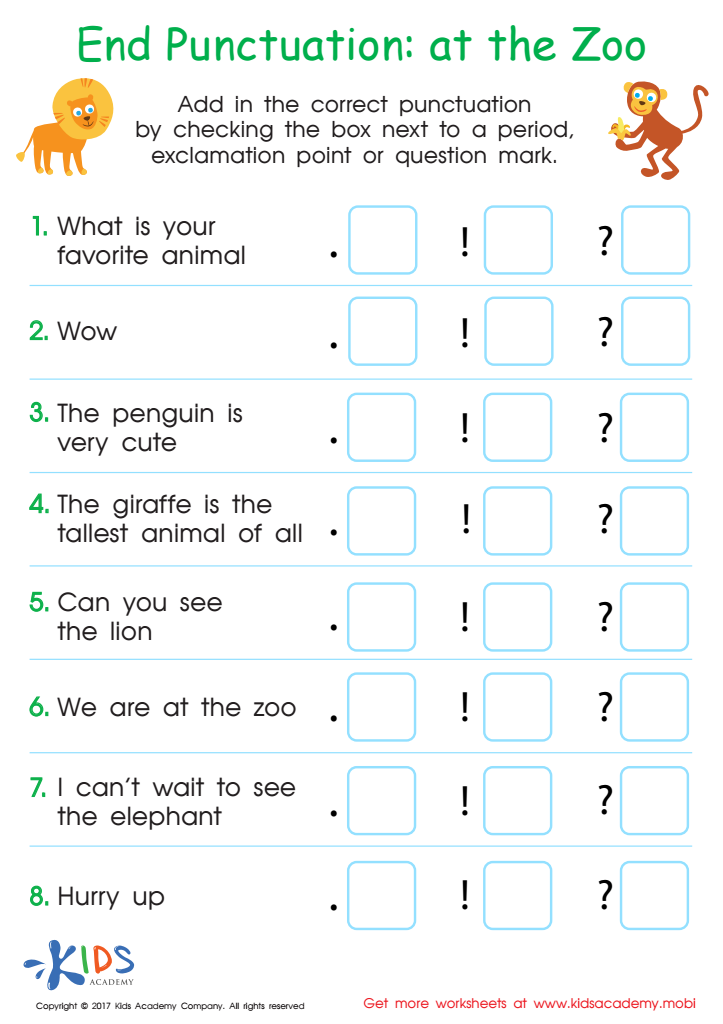

End Punctuation: At the Zoo Worksheet
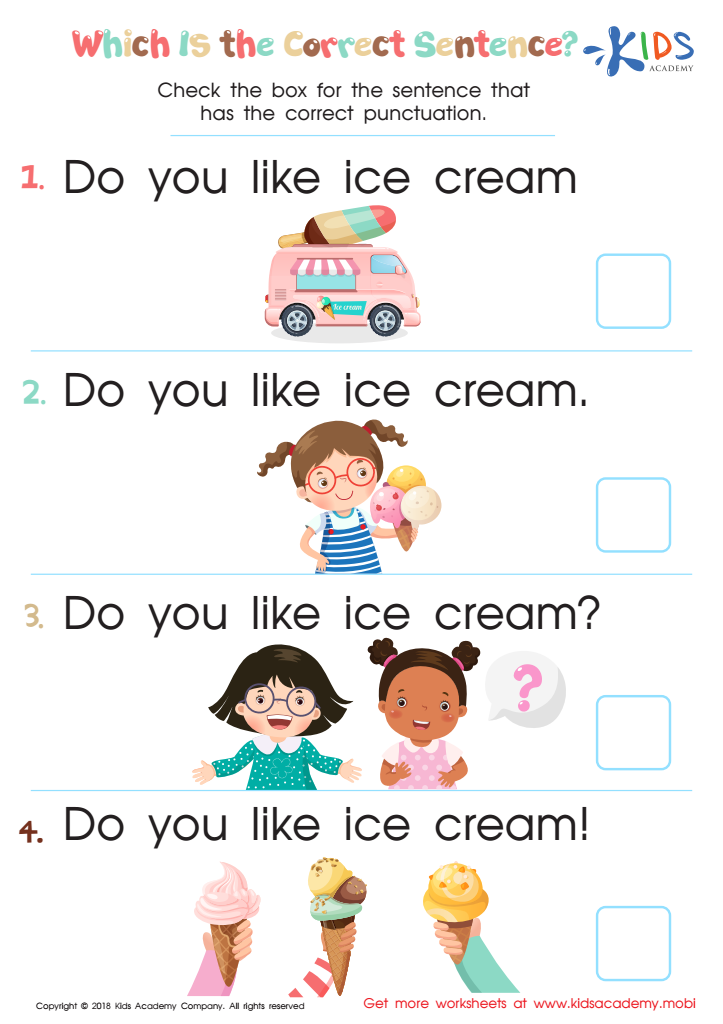

Which is the Correct Sentence? Worksheet
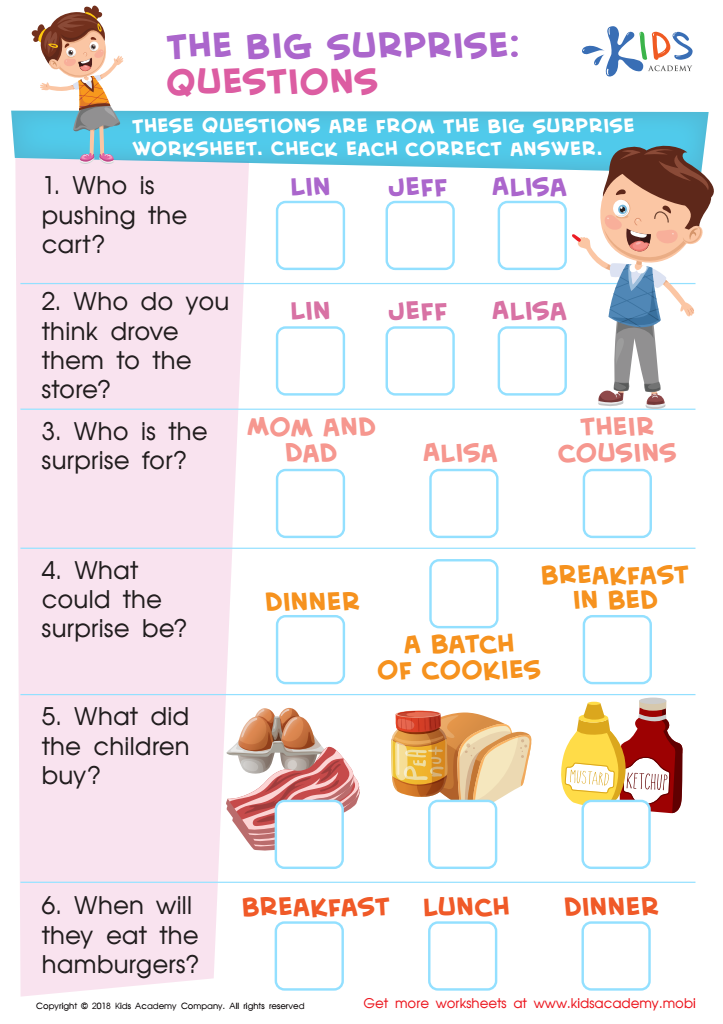

The Big Surprise: Questions Worksheet
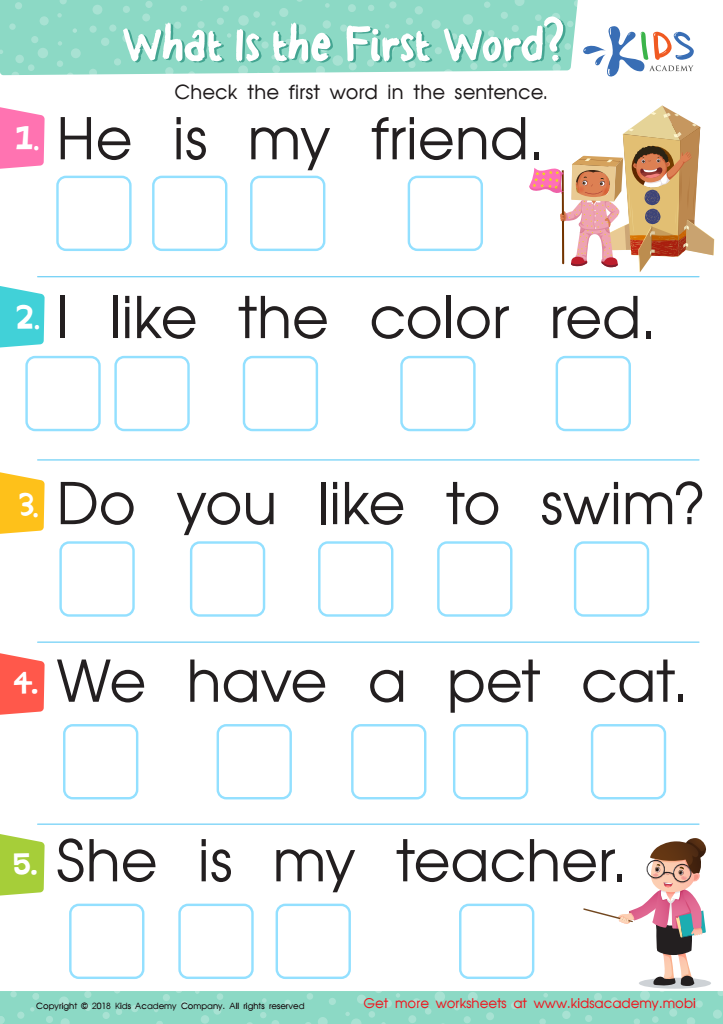

What is the First Word? Worksheet
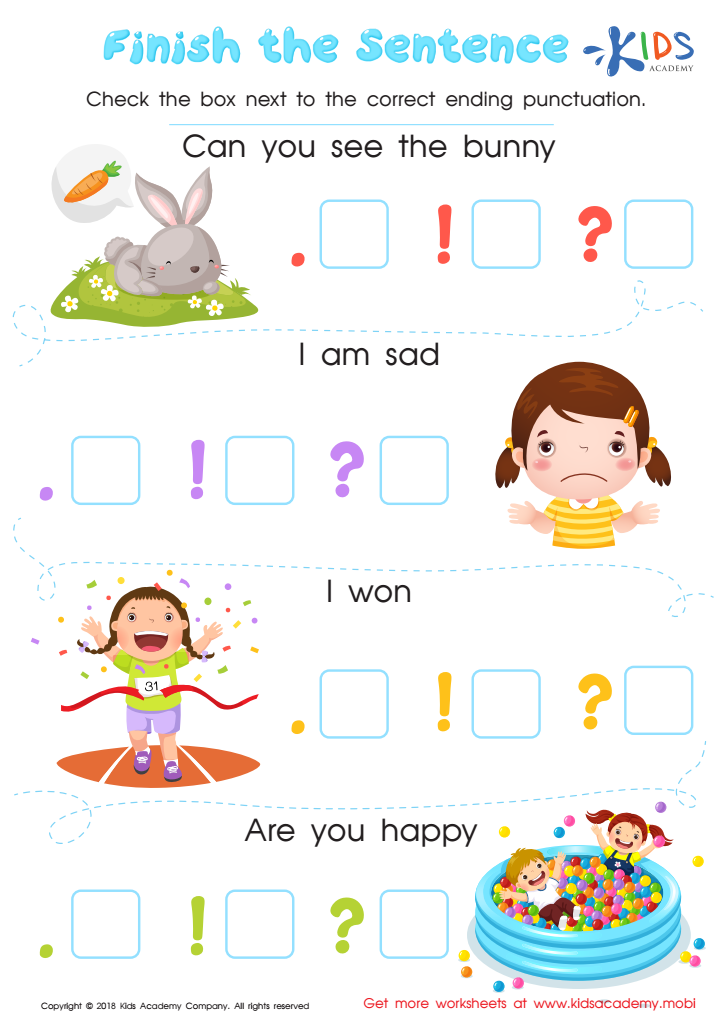

Finish the Sentence Worksheet
Reading comprehension is a vital skill for children aged 5-9, and both parents and teachers play pivotal roles in its development. At this stage, children are not just learning to read; they are also learning to understand and engage with text. Strong reading comprehension skills enhance a child's ability to make connections, infer meaning, and critically analyze information, which are crucial for academic success across subjects.
Moreover, improved comprehension fosters a love for reading, encouraging children to explore diverse genres and topics, ultimately broadening their horizons. Parents and teachers need to cultivate this interest by providing engaging reading materials and discussing texts with children, which helps reinforce understanding.
Investing time in reading comprehension activities builds a child's confidence and equips them with essential skills for their educational journey. It also prepares them for standardized testing and future academic challenges, setting a strong foundation for lifelong learning. By prioritizing reading comprehension, adults demonstrate its importance, helping children realize that reading is not just a school task but a rewarding and enjoyable part of life. Thus, fostering these skills is crucial to helping young learners thrive both in and out of the classroom.
 Assign to My Students
Assign to My Students


















